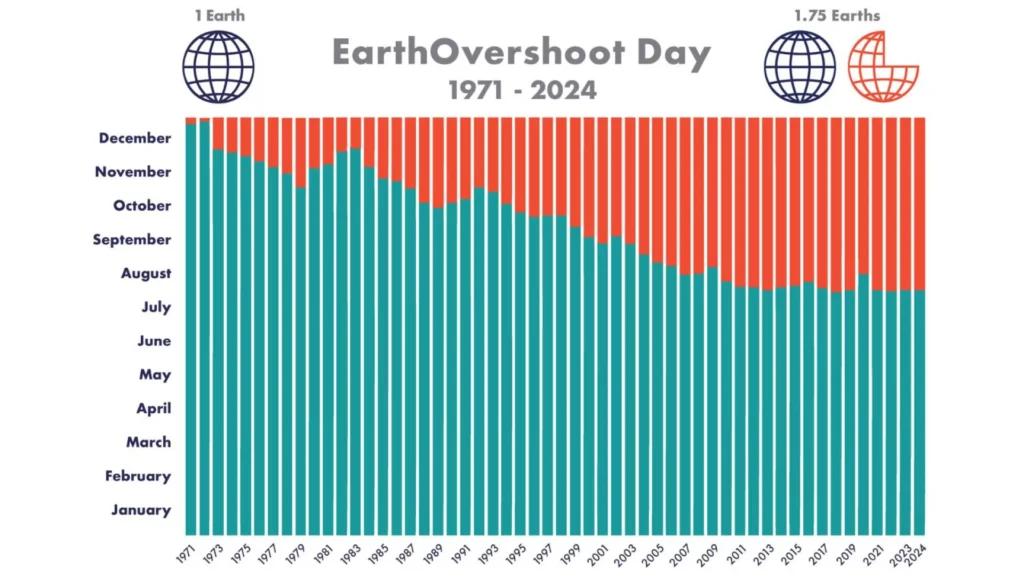Known as Earth Overshoot Day, 1 August marks the date on which we’ve used up all the resources that the planet can regenerate in one year.
On August 1, 2024, humanity will have consumed a year’s worth of Earth’s renewable resources, marking this year’s Earth Overshoot Day. This sobering milestone, calculated annually since 2006, serves as a potent indicator of our planet’s ecological strain.
RELEVANT SUSTAINABLE GOALS



Lewis Akenji, a board member of the Global Footprint Network, warns, “Overshoot will end. The question is how: by design or by disaster.” He emphasizes the need for a planned transition to ensure better security against a planet thrown off balance.
How is the Date for Earth Overshoot Day Determined?
While the date has remained relatively stable over the past decade, it arrives nearly five months earlier than it did in 1971 when the first Overshoot Day fell on December 25. For the remainder of 2024, humanity will be living on borrowed time, further depleting the biosphere.
The Global Footprint Network calculates this date using United Nations data to determine each country’s ecological footprint against Earth’s “biocapacity” – its ability to produce renewable resources and absorb waste. The primary driver of this deficit is global warming caused by CO2 emissions from fossil fuel combustion.

Not all nations consume resources at the same rate. If the entire world lived like the United States, Earth Overshoot Day would occur on March 14. For Belgium, it would be March 23; France, May 7; and Spain, May 20. The most rapid consumers are Qatar and Luxembourg, with hypothetical Overshoot Days of February 11 and February 20, respectively. In contrast, if everyone lived like India, there would be no overshoot, with only 0.7 planets’ worth of resources consumed annually.
To address this pressing issue, the Global Footprint Network suggests that cutting CO2 emissions from fossil fuels by 50% would delay Overshoot Day by three months. Other proposed solutions include creating “15-minute cities” where daily necessities are within walking or cycling distance, introducing four-day work weeks, and encouraging green transport use. For instance, replacing 50% of air travel with high-speed rail could push back the date by 1.8 days
You may also be interested in :
Global Renewable Energy Growth Falls Short of 2030 Target, Report Finds



